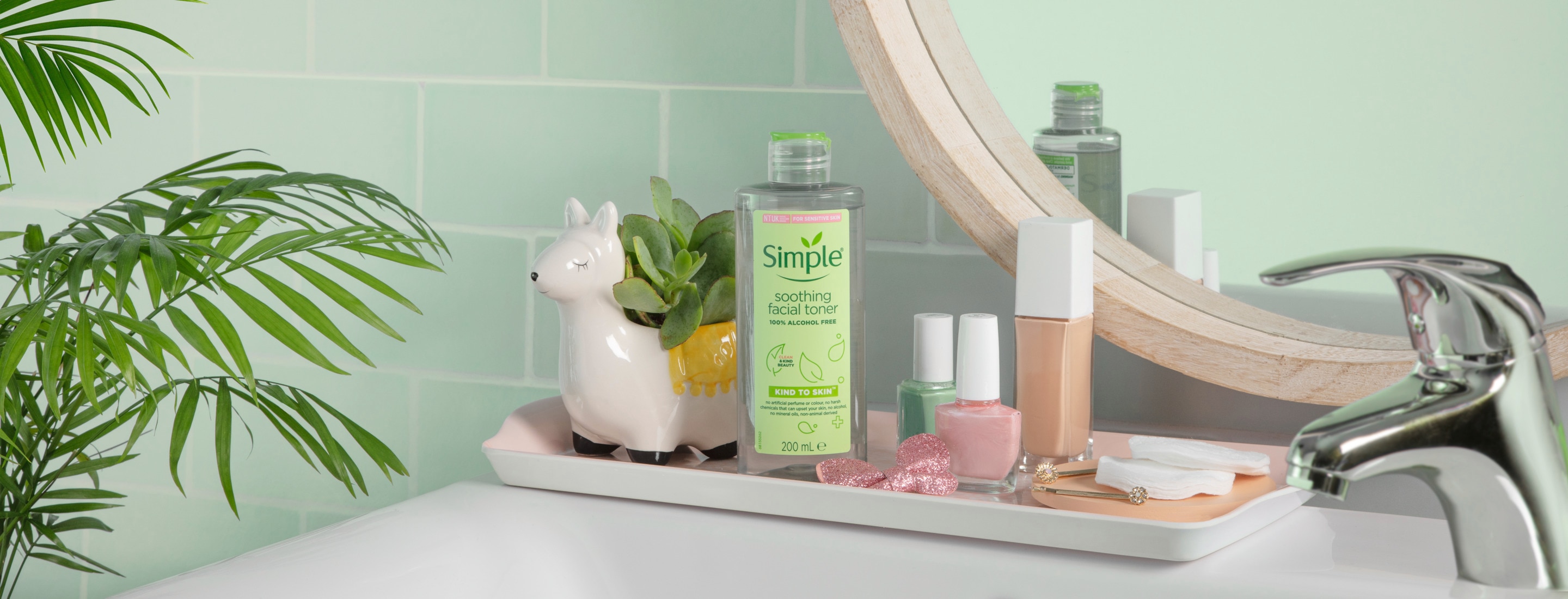Skip to:

Make-up and sensitive skincare
We get it. It’s late. You’re tired. And that make-up’s not going to remove itself. But before you get cosy between the covers, spare a thought for your skin. Even if you don’t usually experience sensitive skin, not removing your make-up properly can clog pores, hold up the skin’s repair process, and weaken the skin’s moisture barrier. Enter sensitive skin, in the form of breakouts, redness, and inflammation.
So does make-up cause spots and irritation, and how can you improve your sensitive skincare while still rocking your favourite bronzer? It’s no biggy: once you know the signs to look out for, all you need are a few minutes before bed (and a few top tips from us!) to help keep your skin protected against the onset of sensitivity caused by make-up.
Does make-up cause spots and blackheads?
Our bodies produce up to a litre of sweat each day (yeah, really!). When sweat mixes with make-up and excess oil in our skin, it can block our pores, causing, you guessed it, blackheads and breakouts. Product residue, make-up, sweat, and oil can build up in the hairline too, making it a hotbed for pesky spots, so keep this in mind while you cleanse.
Our skin’s repair process
When we sleep our skin recovers and repairs. By removing make-up before bed, you give your skin the space it needs to rest and renew, without it having to battle through layers of product build-up first. We know: you’re keen for your beauty sleep. Aren’t we all! But removing your make-up goes a long way in keeping skin sensitivity at bay. Extra beauty points for removing your make-up as soon as you arrive home - which gives your skin even longer to replenish.
Skin’s moisture barrier
Our skin’s lipid barrier protects our skin from external triggers like the weather, pollution, and irritants, to help keep sensitivity at bay. Left in place, make-up can weaken this barrier, meaning it can no longer do its job properly. The result? Your skin is unprotected against these irritant bullies and you might find yourself with a skin reaction on the face, in the form of redness and irritation.
Remember – if you experience a severe skin reaction on the face after wearing make-up, you may have a more serious make-up allergy! Stop using the product immediately and see your GP or a dermatologist for further advice.
Armed with this knowledge, you can make sure that your make-up never gets in the way of your sensitive skincare. Want to know how to take off your make-up like a pro? Our top 6 make-up remover tips will show you how.
-
Related Articles
-
Featured Articles
-
Featured Articles
- Slide One
- Slide Two
- Slide Three









